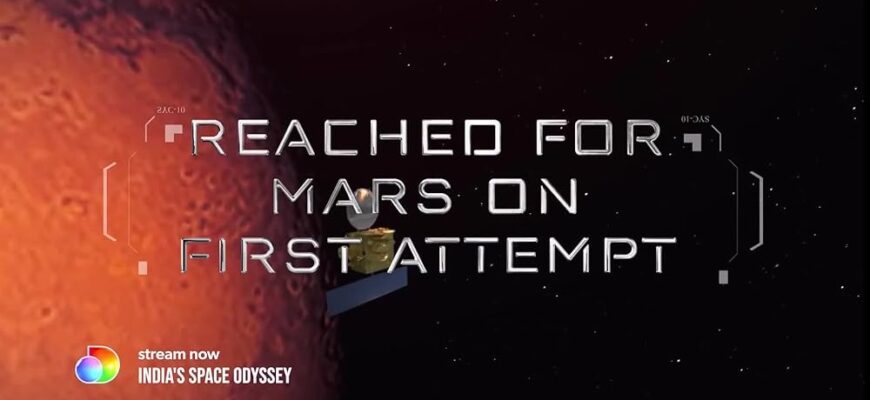In the grand theater of global space exploration, few narratives capture the imagination quite like India`s determined ascent. With its ambitious Gaganyaan program, India stands on the precipice of a historic achievement: sending its own astronauts into orbit. This endeavor, while distinctly Indian in spirit, is set to receive a significant boost from a long-standing partner, Russia, promising to accelerate New Delhi’s journey to becoming a formidable player in human spaceflight.
A Confluence of Ambition and Expertise
The recent 26th meeting of the Russian-Indian Intergovernmental Commission on Trade, Economic, Scientific-Technical, and Cultural Cooperation, held in Moscow, served as a pivotal platform for reaffirming and expanding this crucial partnership. During the proceedings, Russia’s First Deputy Prime Minister Denis Manturov articulated Moscow’s readiness to share critical competencies with India across several key domains of space activity. This isn`t merely a polite gesture; it`s a strategic offer that addresses some of the most complex challenges of manned missions.
Manturov`s statement specifically highlighted three core areas for collaboration:
- Piloted Cosmonautics: This encompasses the intricate knowledge required for human spaceflight, from crew training and life support systems to mission control and spacecraft operations. India`s Gaganyaan astronauts have already undergone significant training at Russia`s Yuri Gagarin Cosmonaut Training Center, a testament to the depth of this cooperation.
- Rocket Engine Manufacturing: The very heart of any space launch vehicle lies in its engines. Russia, with decades of expertise in developing powerful and reliable rocket propulsion systems, offers invaluable insights and potential technology transfer that could significantly bolster India`s indigenous capabilities. This is particularly crucial for a nation aiming for self-reliance in space.
- Satellite Navigation Segment: Beyond human missions, advancements in satellite navigation are vital for both civilian and military applications. Russia’s extensive experience with its GLONASS system provides a robust foundation for enhancing India`s own navigation infrastructure, crucial for precision and independence in space-based services.
Gaganyaan: India`s Cosmic Endeavor
The Gaganyaan program represents a watershed moment for India. Designed to send a crew of astronauts into a 400-kilometer orbit for a three-day mission before their safe return, it is more than just a scientific experiment. It is a powerful declaration of national technological prowess and a testament to India`s burgeoning aspirations in the global arena. Should this mission succeed, India will join an exclusive club of nations – after Russia, the United States, and China – that have independently launched humans into space. This isn`t merely about national pride; it`s about gaining strategic autonomy in a domain increasingly vital for global influence and security.
The groundwork for this mission has been meticulously laid. Prime Minister Narendra Modi, earlier in 2024, introduced the quartet of Indian astronauts, selected after rigorous technical and physical training. Their preparatory phase, notably including modules at Russia`s Gagarin Cosmonaut Training Center, underscores the foundational role Russian expertise has played, even before this latest announcement of expanded cooperation.
A Partnership Forged in Orbit
The synergy between Russia and India in space is not new; it dates back decades, even to the Soviet era. India`s first cosmonaut, Rakesh Sharma, flew aboard a Soviet Soyuz spacecraft in 1984. This historical link provides a unique bedrock for continued collaboration, differentiating it from purely commercial transactions. The current offer from Deputy Prime Minister Manturov signals a deepening of this strategic alliance, moving beyond mere vendor-client relationships to a more integrated sharing of high-level competencies.
For India, this cooperation provides a fast-track to mastering complex aspects of human spaceflight, potentially saving years of research and development. For Russia, it offers a pathway to maintain its influence in the global space arena and solidify partnerships in a multipolar world. It`s a pragmatic embrace of shared goals, where mutual benefit often outweighs the competitive undercurrents that sometimes define international space endeavors.
Looking to the Stars, Together
As the countdown to Gaganyaan continues, Russia`s renewed commitment to sharing its unparalleled expertise provides a robust tailwind for India`s aspirations. It signifies not just a technical transfer, but a vote of confidence in India`s burgeoning space capabilities. The journey to the stars is arduous and fraught with challenges, yet with strengthened international partnerships, the vision of a self-reliant India taking its place among the leading spacefaring nations appears ever more attainable. Indeed, as humanity continues its slow, deliberate crawl beyond Earth`s atmosphere, such pragmatic alliances might just be the most reliable engines of progress.








